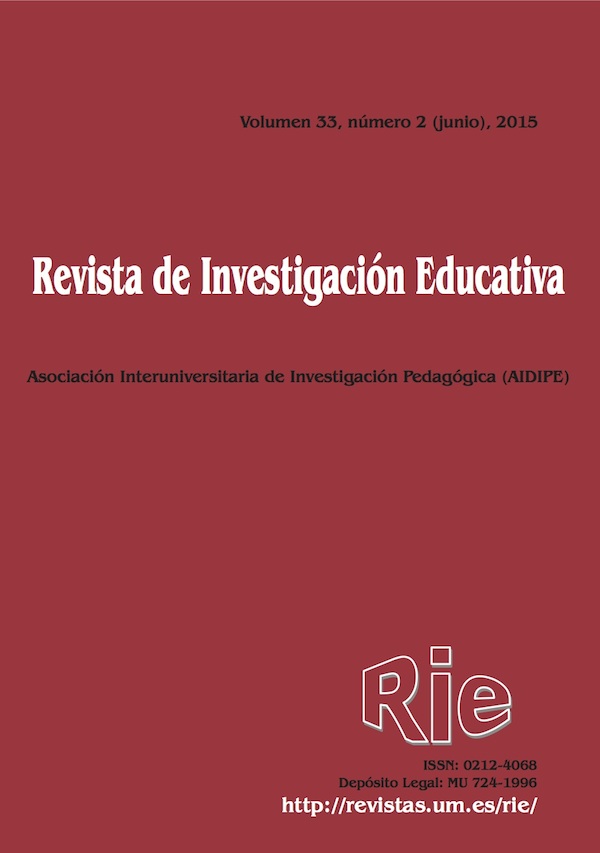Teacher´s knowledge about specific learning disabilities in reading and writing
Abstract
Specific Learning Disabilities (SLD) have generated much interest from educators and recent legislative reform has led to changes in this concept. The role of teachers in the prevention, detection and intervention of these disorders requires specific knowledge. This study analyses preschool and primary school teacher knowledge of general information, symptoms/diagnoses and interventions on reading and writing SLD (SLD-R and W) and its relationship with initial training and general or specific teaching experience. A sample of 149 teachers completed a survey including demographic questions (11) and a scale of knowledge on SLD-R and W (38 items). Results of the survey reveal that teachers have a greater degree of knowledge regarding intervention, erroneous conceptions of symptoms/diagnoses and knowledge gaps regarding general information. No relationship was found between training and experience and this knowledge. Conclusions reached highlight some practical repercussions: erroneous conceptions of symptoms may negatively affect the identification of SLD-R and W students, attention to risk factors and early intervention. It may also increase the risk of inappropriate counselor referrals and ineffective interventions.
Downloads
-
Abstract11862
-
PDF (Español (España))9380
The articles and scientific documents published in RIE abide the following conditions:
1. The Servicio de Publicaciones de la Universidad de Murcia (the publisher) has the property rights (copyright) of all the documents published and allows the reuse under the user’s license indicated in point 2.
2. All documents are published in the digital edition of RIE under a Creative Commons Reconocimiento-NoComercial-SinObraDerivada 4.0 Internacional. (legal document) license. These documents can be copied, used, distributed, communicated and explained publicly if: i) the author(s) and its original source of publishing (magazine, publisher and URL of the document) are cited; ii) it is not used for commercial purpose; iii) the existence and the specifications about this license are mentioned.
3. Auto-archive’s conditions. The authors are allowed and encouraged to digitally distribute the pre-print versions (a version before evaluation) and/or post-print (a version that it is already evaluated and accepted to its publication). This promotes circulation and distribution earlier and can increase the citations and significance within the academic community.










